Dolores Cannon is a hypnotherapist specializing in past life regression. Her work spanned almost 50 years and has taken her on an incredible spiritual journey that she is sharing with us today. Home - Dolores Cannon.
Interestingly, Gnostics believed what Ms. Cannon was telling us. Most of the gnostic writings were thought to be lost after losing the battle with Orthodox Christianity when their writings were eliminated. One interesting parable in Matthew 13: 44-46 the Hidden Treasure and the Pearl and as we know today. Many verses in the Bible where similar to the sayings of Jesus in the Gospel of Thomas, discovered in 1945 and can be found in the Nag Hammadi Library.
In ancient times, there was a mystical poem about all of us. The Hymn of the Pearl may be one of the greatest Gnostic scriptures ever composed. It’s one of several hymns embedded in The Acts of Saint Thomas in India. Everything seems to be hidden but is now being revealed. The hymn is commonly interpreted as a Gnostic view of the human condition; we are spirits lost in a world of matter and forgetful of our true origin. This state of affairs could change by a revelatory message delivered by a divine messenger. The letter takes on a symbolic representation of gnosis. The Song of the Pearl is a narrative poem about a prince’s quest for a pearl. Presented in the Acts of Thomas as a hymn uttered by Thomas, The Song of the Pearl is also a gnostic tale of salvation, of sleeping in error and awakening to Light, of quest not only for the pearl but for the benefit of possessing the pearl, a return to the Light.
The Hymn of the Pearl – The Acts of Thomas (gnosis.org)
(The Hymn of Judas Thomas the Apostle
in the Country of the Indians)
I.
When, a quite little child, I was dwelling
In the House of my Father’s Kingdom,
And in the wealth and the glories
Of my Up-bringers I was delighting,
From the East, our Home, my Parents
Forth-sent me with journey-provision.
Indeed from the wealth of our Treasure,
They bound up for me a load.
Large was it, yet was it so light
That all alone I could bear it.
II.
Gold from the Land of Beth-Ellaya,
Silver from Gazak the Great,
Chalcedonies of India,
Iris-hued [Opals?] from Kãshan.
They girt me with Adamant [also]
That hath power to cut even iron.
My Glorious Robe they took off me
Which in their love they had wrought me,
And my Purple Mantle [also]
Which was woven to match with my stature.
III.
And with me They [then] made a compact;
In my heart wrote it, not to forget it:
“If thou goest down into Egypt,
And thence thou bring’st the one Pearl –
“[The Pearl] that lies in the Sea,
Hard by the loud-breathing Serpent –
“[Then] shalt Thou put on thy Robe
And thy Mantle that goeth upon it,
“And with thy Brother, Our Second,
Shalt thou be Heir in our Kingdom.”
IV.
I left the East and went down
With two Couriers [with me];
For the way was hard and dangerous,
For I was young to tread it.
I traversed the borders of Maish~ n,
The mart of the Eastern merchants,
And I reached the Land of Babel,
And entered the walls of Sarbãg.
Down further I went into Egypt;
And from me parted my escorts.
V.
Straightway I went to the Serpent;
Near to his lodging I settled,
To take away my Pearl
While he should sleep and should slumber.
Lone was I there, yea, all lonely;
To my fellow-lodgers a stranger.
However I saw there a noble,
From out of the Dawn-land my kinsman,
A young man fair and well favoured,
Son of Grandees; he came and he joined me.
VI.
I made him my chosen companion,
A comrade, for sharing my wares with.
He warned me against the Egyptians,
’Gainst mixing with the unclean ones.
For I had clothed me as they were,
That they might not guess I had come
From afar to take off the Pearl,
And so rouse the Serpent against me.
VII.
But from some occasion or other
They learned I was not of their country.
With their wiles they made my acquaintance;
Yea, they gave me their victuals to eat.
I forgot that I was a King’s son,
And became a slave to their king.
I forgot all concerning the Pearl
For which my Parents had sent me;
And from the weight of their victuals
I sank down into a deep sleep.
VIII.
All this that now was befalling,
My Parents perceived and were anxious.
It was then proclaimed in our Kingdom,
That all should speed to our Gate –
Kings and Chieftains of Parthia,
And of the East all the Princes.
And this is the counsel they came to:
I should not be left down in Egypt.
And for me they wrote out a Letter;
And to it each Noble his Name set:
IX.
“From Us – King of Kings, thy Father,
And thy Mother, Queen of the Dawn-land,
“And from Our Second, thy Brother –
To thee, Son, down in Egypt, Our Greeting!
“Up an arise from thy sleep,
Give ear to the words of Our Letter!
“Remember that thou art a King’s son;
See whom thou hast served in thy slavedom.
Bethink thyself of the Pearl
For which thou didst journey to Egypt.
X.
“Remember thy Glorious Robe,
Thy Splendid Mantle remember,
“To put on and wear as adornment,
When thy Name may be read in the Book of the Heroes,
“And with Our Successor, thy Brother,
Thou mayest be Heir in Our Kingdom.”
My Letter was [surely] a Letter
The King had sealed up with His Right Hand,
’Gainst the Children of Babel, the wicked,
The tyrannical Daimons of Sarbãg.
XI.
It flew in the form of the Eagle,
Of all the winged tribes the king-bird;
It flew and alighted beside me,
And turned into speech altogether.
At its voice and the sound of its winging,
I waked and arose from my deep sleep.
Unto me I took it and kissed it;
I loosed its seal and I read it.
E’en as it stood in my heart writ,
The words of my Letter were written.
XII.
I remembered that I was a King’s son,
And my rank did long for its nature.
I bethought me again of the Pearl,
For which I was sent down to Egypt.
And I began [then] to charm him,
The terrible loud-breathing Serpent.
I lulled him to sleep and to slumber,
Chanting o’er him the Name of my Father,
The Name of our Second, [my Brother],
And [Name] of my Mother, the East-Queen.
XIII.
And [thereon] I snatched up the Pearl,
And turned to the House of my Father.
Their filthy and unclean garments
I stripped off and left in their country.
To the way that I came I betook me,
To the Light of our Home, to the Dawn-land.
On the road I found [there] before me,
My Letter that had aroused me –
As with its voice it had roused me,
So now with its light it did lead me –
XIV.
On fabric of silk, in letter of red [?],
With shining appearance before me [?],
Encouraging me with its guidance,
With its love it was drawing me onward.
I went forth; through Sarbãg I passed;
I left B~ bel-land on my left hand;
And I reached unto Maishan the Great,
The meeting-place of the merchants,
That lieth hard by the Sea-shore.
XV.
My Glorious Robe that I’d stripped off,
And my Mantle with which it was covered,
Down from the Heights of Hyrcania,
Thither my Parents did send me,
By the hands of their Treasure-dispensers
Who trustworthy were with it trusted.
Without my recalling its fashion, –
In the House of my Father my childhood had left it,–
At once, as soon as I saw it,
The Glory looked like my own self.
XVI.
I saw it in all of me,
And saw me all in [all of] it, –
That we were twain in distinction,
And yet again one in one likeness.
I saw, too, the Treasurers also,
Who unto me had down-brought it,
Were twain [and yet] of one likeness;
For one Sign of the King was upon them –
Who through them restored me the Glory,
The Pledge of my Kingship [?].
XVII.
The Glorious Robe all-bespangled
With sparkling splendour of colours:
With Gold and also with Beryls,
Chalcedonies, iris-hued [Opals?],
With Sards of varying colours.
To match its grandeur [?], moreover, it had been completed:
With adamantine jewels
All of its seams were off-fastened.
[Moreover] the King of Kings’ Image
Was depicted entirely all o’er it;
And as with Sapphires above
Was it wrought in a motley of colour.
XVIII.
I saw that moreover all o’er it
The motions of Gnosis abounding;
I saw it further was making
Ready as though for to speak.
I heard the sound of its Music
Which it whispered as it descended [?]:
“Behold him the active in deeds!
For whom I was reared with my Father;
“I too have felt in myself
How that with his works waxed my stature.”
XIX.
And [now] with its Kingly motions
Was it pouring itself out towards me,
And made haste in the hands of its Givers,
That I might [take and] receive it.
And me, too, my love urged forward
To run for to meet it, to take it.
And I stretched myself forth to receive it;
With its beauty of colour I decked me,
And my Mantle of sparkling colours
I wrapped entirely all o’er me.
XX.
I clothed me therewith, and ascended
To the Gate of Greeting and Homage.
I bowed my head and did homage
To the Glory of Him who had sent it,
Whose commands I [now] had accomplished,
And who had, too, done what He’d promised.
[And there] at the Gate of His House-sons
I mingled myself with His Princes;
For He had received me with gladness,
And I was with Him in His Kingdom;
XXI.
To whom the whole of His Servants
With sweet-sounding voices sing praises.
* * * * *
He had promised that with him to the Court
Of the King of Kings I should speed,
And taking with me my Pearl
Should with him be seen by our King.
which he spake in prison, is ended.
The following alternative translation from the Syriac version of the text is by William Wright, Apocryphal Acts of the Apostles (London, 1871), pp. 238-245. Illegible words are indicated by (…). The hymn has been arranged in couplets, following A. E. J. Klijn, The Acts of Thomas (Leiden, 1962), pp. 120-125. Klijn uses Wright’s translation except for a few variant readings.
The Hymn of Judas Thomas the Apostle
When I was a little child,
and dwelling in my kingdom,
in my father’s house, and was content with the wealth and the
luxuries of my nourishers,
from the East, our home,
my parents equipped me (and) sent me forth;
and of the wealth of our treasury
they took abundantly, (and) tied up for me a load
large and (yet) light, which I myself could carry,
gold of Beth-Ellaya,
and silver of Gazak the great,
and rubies of India,
and agates from Beth-Kashan,
and they furnished me with the adamant,
which can crush iron.
And they took off from me the glittering robe,
which in their affection they made for me,
and the purple toga,
which was measured (and) woven to my stature.
And they made a compact with me,
and wrote it in my heart, that it might not be forgotten:
“If thou goest down into Egypt,
and bringest the one pearl,
which is in the midst of the sea
around the loud-breathing serpent,
thou shalt put on thy glittering robe
and thy toga, with which (thou art) contented,
and with thy brother, who is next to us in authority,
thou shalt be heir in our kingdom.”
I quitted the East (and) went down,
there being two guardians,
for the way was dangerous and difficult,
and I was very young to travel it.
I passed through the borders of Maishan,
the meeting-place of the merchants of the East,
and I reached the land of Babel,
and I entered the walls of Sarbug.
I went down into Egypt,
and my companions parted from me.
I went straight to the serpent,
I dwelt in his abode,
(waiting) till he should lumber and sleep,
and I could take my pearl from him.
And when I was single and alone
(and) became strange to my family,
one of my race, a free-born man,
and Oriental, I saw there,
a youth fair and loveable,
the son of oil-sellers;
and he came and attached himself to me,
and I made him my intimate friend,
and associate with whom I shared my merchandise.
I warned him against the Egyptians,
and against consorting with the unclean;
And I dressed in their dress,
that they might not hold me in abhorrence,
because I was come from abroad in order to take the pearl,
and arouse the serpent against me.
But in some way other or another
they found out that I was not their countryman,
and they dealt with me treacherously,
and gave their food to eat.
I forget that I was a son of kings,
and I served their king;
and I forgot the pearl,
for which my parents had sent me,
and because of the burden of their oppressions
I lay in a deep sleep.
But all this things that befell me
my parents perceived, and were grieved for me;
and proclamation was made in our kingdom,
that every one should come to our gate [kingdom],
kings and princes of Parthia,
and all the nobles of the East.
And they wove a plan on my behalf,
that I might not be left in Egypt;
and they wrote to me a letter,
and every noble signed his name to it:
“From thy father, the king of kings,
and thy mother, the mistress of the East,
and from thy brother, our second (in authority),
to thee our son, who art in Egypt, greeting!
Call to mind that thou art a son of kings!
See the slavery,–whom thou servest!
Remember the pearl,
for which thou was sent to Egypt!
Think of thy robe,
and remember thy splendid toga,
which thou shalt wear and (with which) thou shalt be adorned,
when thy name hath been read out in the list of the valiant,
and thy brother, our viceroy,
thou shalt be in our kingdom.”
My letter is a letter,
which the king sealed with his own right hand,
(to keep it) from the wicked ones, the children of Babel,
and from the savage demons of Sarbug.
It flew in the likeness of an eagle,
the king of all birds;
it flew and alight beside me,
and became all speech.
At its voice and the sound of its rustling,
I started and arose from my sleep.
I took it up and kissed it,
and I began (and) read it;
and according to what was traced on my heart
were the words of my letter.
I remembered that I was a son of royal parents,
and my noble birth asserted itself.
I remembered the pearl,
for which I had been sent to Egypt,
and I began to charm him,
the terrible loud breathing serpent.
I hushed him asleep and lulled him into slumber,
for my father’s name I named over him,
and the name of our second (in power),
and the of my mother, the queen of the East.
And I snatched away the pearl,
and turned to go back to my father’s house.
And their filthy and unclean dress I stripped off,
and left it in their country;
and I took my way straight to come
to the light of our home in the East.
And my letter, my awakener,
I found before me on the road;
and as with its voice it had awakened me,
(so) too with its light it was leading me.
It, that dwelt in the palace,
gave light before me with its form,
and with its voice and its guidance
it also encouraged me to speed,
and with its love it drew me on.
I went forth (and) passed by Sarbug;
I left Babel on my left hand;
and I came to the great Maisan,
to the haven of merchants,
which sitteth on the shore of the sea.
And my bright robe, which I had stripped off,
and the toga that was wrapped with it,
from Rantha and Reken(?)
my parents had sent thither
by the hand of their treasures,
who in their truth could be trusted therewith.
And because I remembered not its fashion,–
for in my childhood I had left it in my father’s house,–
on a sudden, when I received it,
the garment seemed to me to become like a mirror of myself.
I saw it all in all,
and I to received all in it,
for we were two in distinction
and yet gain one in one likeness.
And the treasurers too,
who brought it to me, I saw in like manner
to be two (and yet) one likeness,
for one sign of the king was written on them (both),
of the hands of him who restored to me through them
my trust and my wealth,
my decorated robe, which
was adorned with glorious colors,
with gold and beryls
and rubies and agates
and sardonyxes, varied in color.
And it was skillfully worked in its home on high,
and with diamond clasps
were all its seams fastened;
and the image of the king of kings
was embroidered and depicted in full all over it,
and like the stone of the sapphire too
its hues were varied.
And I saw also that all over it
the instincts of knowledge were working,
and I saw too that it was preparing to speak.
I heard the sound of its tones,
which it uttered with its….., (saying):
“I am the active in deeds,
whom they reared for him before my father;
and I perceived myself,
that my stature grew according to his labors.”
And in its kingly movements
it poured itself entirely over me,
and on the hand of its givers
it hastened that I might take it.
And love urged me too run
to meet it and receive it;
and I stretched forth and took it.
With the beauty of its colors I adorned myself,
and I wrapped myself wholly in my toga
of brilliant hues.
I clothed myself with it, and went up to the gate
of salutation and prostration;
I bowed my head and worshipped the majesty
of my father who sent me,–
for I had done his commandments,
and he too had done what he promised,–
and the gate of his….,
I mingled with his princes,
for he rejoiced in me and received me,
and I was with him in his kingdom,
and with the voice of….
all his servants praised him.
And he promised that to the gate too
of the king of kings with him I should go,
and with my offering and my pearl
with him should present myself to our king.
The Hymn of Judas Thomas the Apostles,
which he spake in prison, is ended.
The Hymn of the Pearl – The Acts of Thomas (gnosis.org)


 philosopher one reads. According to Plato, reality as perceived by the five senses is merely the surface of a highly complex and structured system. The act of seeing and recognizing this system Plato calls “ideas.” A key element in his philosophy, which would later transfer to Gnosticism and Gnostic, is the concept that every human had a previous and thorough understanding of the structures of reality. Unfortunately, this knowledge was somehow lost. The reclaiming of this knowledge through the comprehension of reality underlying structures is Gnosis.
philosopher one reads. According to Plato, reality as perceived by the five senses is merely the surface of a highly complex and structured system. The act of seeing and recognizing this system Plato calls “ideas.” A key element in his philosophy, which would later transfer to Gnosticism and Gnostic, is the concept that every human had a previous and thorough understanding of the structures of reality. Unfortunately, this knowledge was somehow lost. The reclaiming of this knowledge through the comprehension of reality underlying structures is Gnosis. Christian struggle to define orthodoxy.
Christian struggle to define orthodoxy. 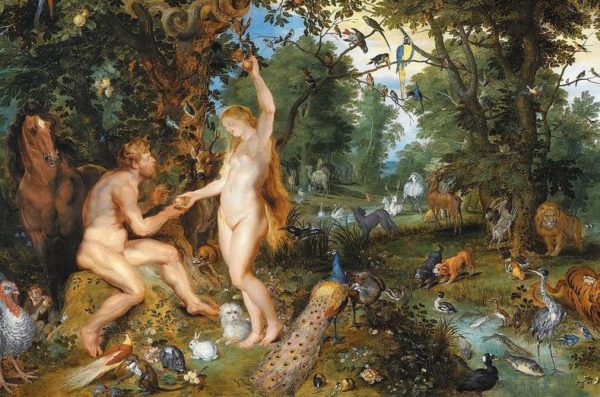 commanded Adam and Eve not to eat from the tree of knowledge of good and evil, preventing them from knowing the spiritual truth.
commanded Adam and Eve not to eat from the tree of knowledge of good and evil, preventing them from knowing the spiritual truth.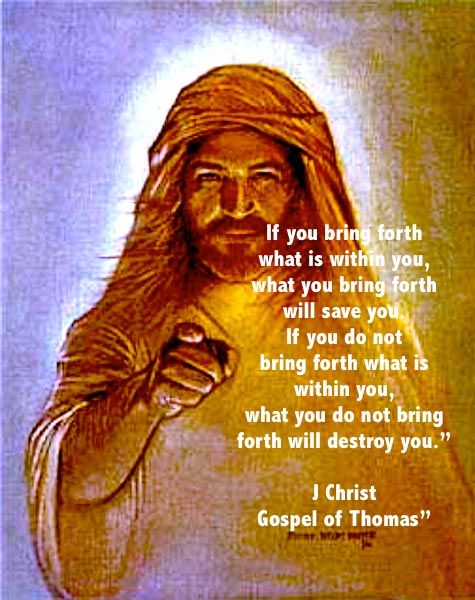
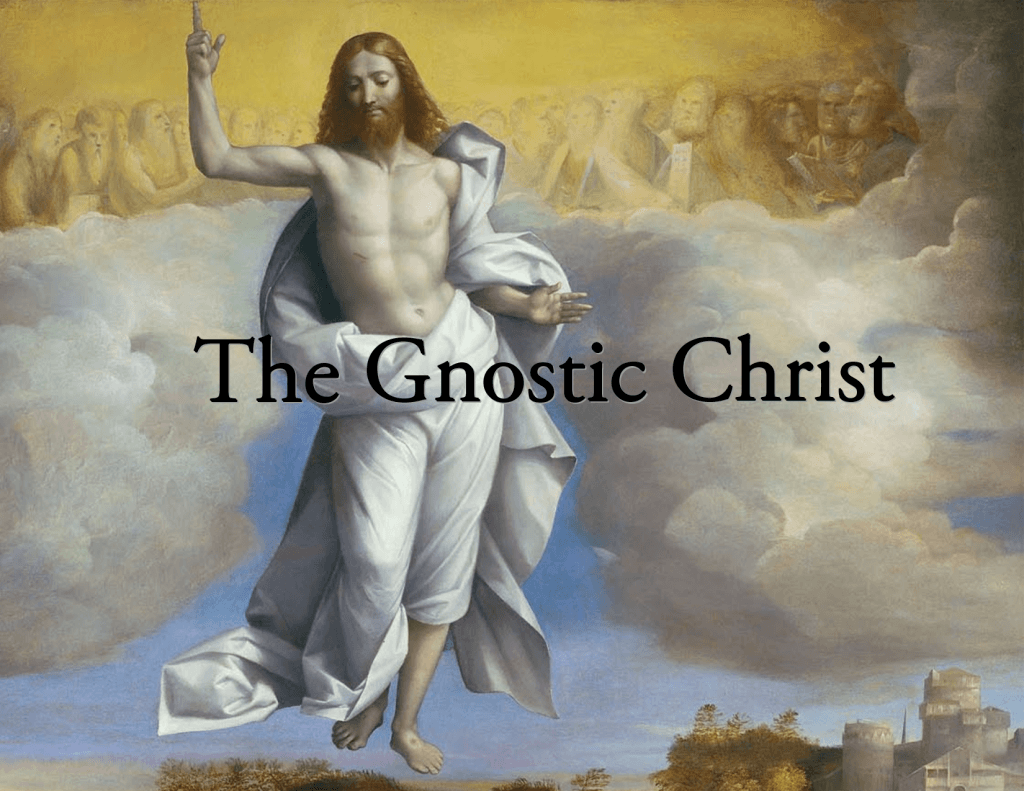 and
and 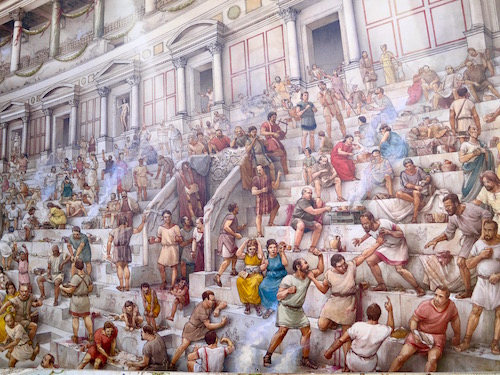 who
who Constantine was deeply disturbed on the eve of a significant battle and wonder how he could receive divine assistance for his military cause. Constantine claimed that the night before the battle he had a dream of the cross and was told in his dream that this was the sign that would give him victory. He went into battle and emerged victorious. There are doubts this was genuine because Constantine continued to worship other divinities, the god of the sun.
Constantine was deeply disturbed on the eve of a significant battle and wonder how he could receive divine assistance for his military cause. Constantine claimed that the night before the battle he had a dream of the cross and was told in his dream that this was the sign that would give him victory. He went into battle and emerged victorious. There are doubts this was genuine because Constantine continued to worship other divinities, the god of the sun. The theory of reincarnation is said to have been recorded in the Bible. But the proper interpretations were struck from it during an Ecumenical Council meeting of the Catholic Church in Constantinople sometime around 553 A.D.
The theory of reincarnation is said to have been recorded in the Bible. But the proper interpretations were struck from it during an Ecumenical Council meeting of the Catholic Church in Constantinople sometime around 553 A.D.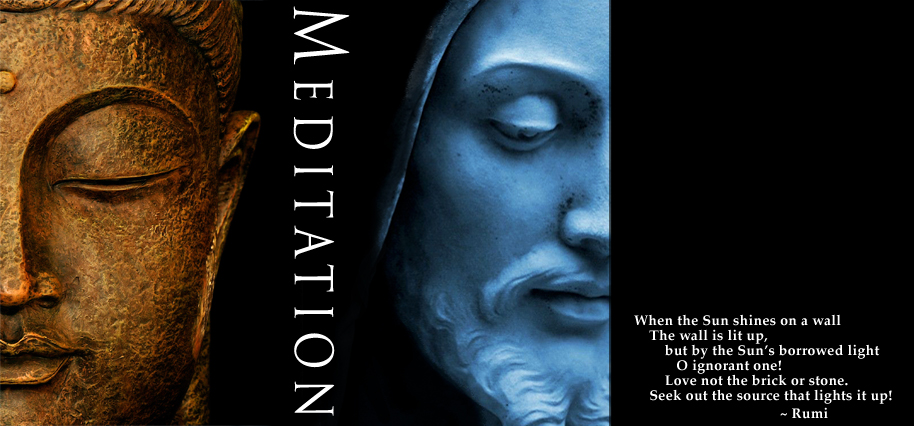 studying such text?
studying such text?